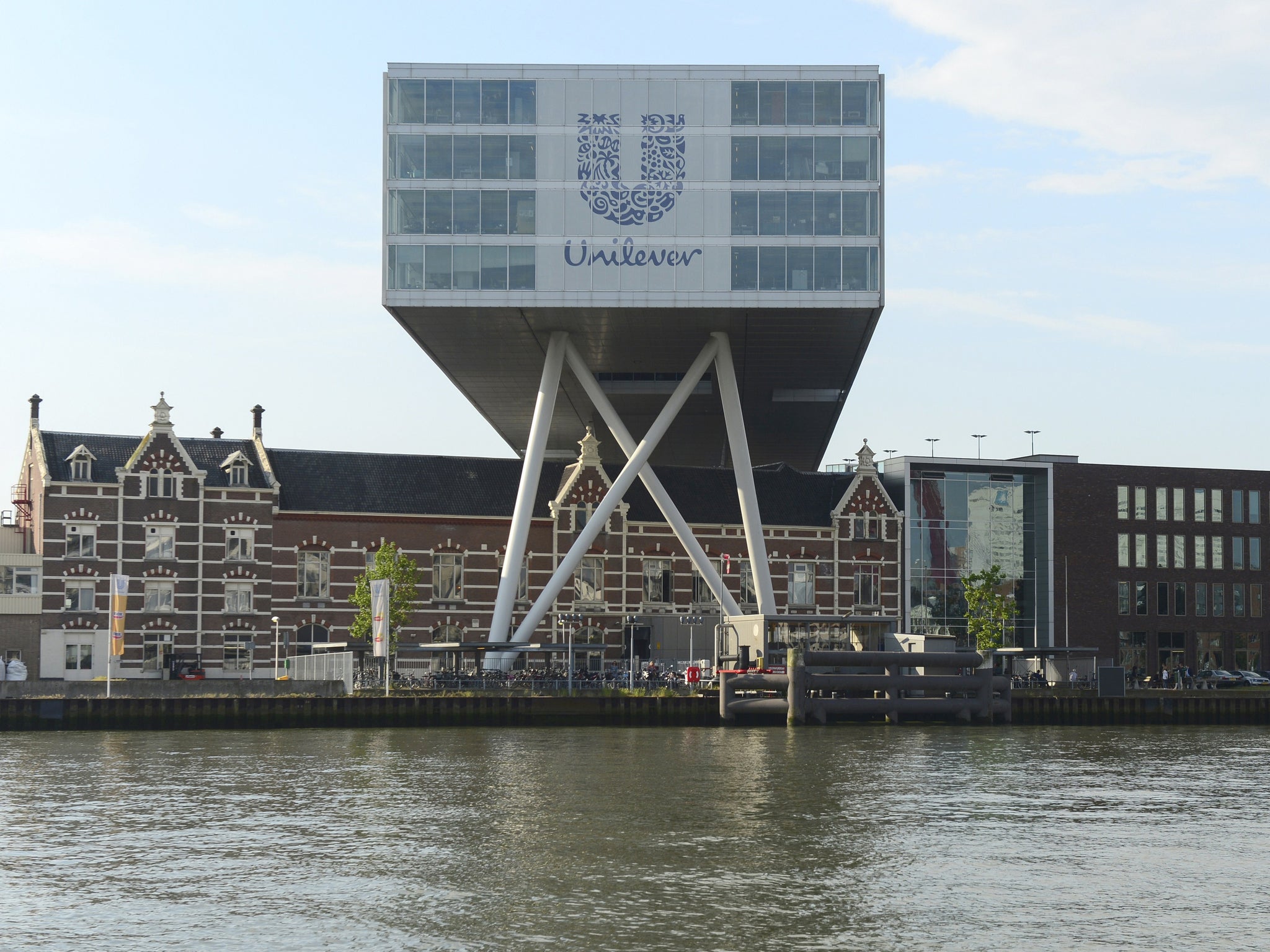GMB urges investors to defend the Unilever model. They need to listen
Insecurity is helping to fuel an ugly wave of populism that will ultimately harm investors’ best interests. Unilever has shown that there is a better way. It would be a tragedy if that were to be lost as a result of Kraft Heinz’s rejected takeover approach

Your support helps us to tell the story
From reproductive rights to climate change to Big Tech, The Independent is on the ground when the story is developing. Whether it's investigating the financials of Elon Musk's pro-Trump PAC or producing our latest documentary, 'The A Word', which shines a light on the American women fighting for reproductive rights, we know how important it is to parse out the facts from the messaging.
At such a critical moment in US history, we need reporters on the ground. Your donation allows us to keep sending journalists to speak to both sides of the story.
The Independent is trusted by Americans across the entire political spectrum. And unlike many other quality news outlets, we choose not to lock Americans out of our reporting and analysis with paywalls. We believe quality journalism should be available to everyone, paid for by those who can afford it.
Your support makes all the difference.Is there still room for a better sort of capitalism?
With a fog of uncertainty hanging over all those working at Unilever, the GMB union has written to its leading investors, including BlackRock Investment Management and Legal & General Investment Management, in the wake of a pledge by the company’s management to turbo-charge shareholders’ returns.
Unilever bosses have promised a “comprehensive review of options available to accelerate delivery of value for the benefit of our shareholders” after sending suitor Kraft Heinz packing.
While not a saint, the Marmite maker has long stood for a better sort of capitalism. Indeed, the GMB highlights Unilever’s “proven track record of investment, decent pensions, good working conditions and recognising trade unions like GMB”, its “proud history of treating workers with respect” and its “status as a model employer”.
However, union leaders are concerned that the aforementioned statement points to the impending sacrifice of this on the altar of “accelerated delivery for the benefit of our shareholders”, and that workers, whom CEO Paul Poulman last week said should be considered when a UK champion receives a takeover approach, will reap a Kraft-style whirlwind despite the latter’s retreat back across the Atlantic.
After all, when big company bosses like Mr Poulman talk about boosting returns for shareholders it doesn’t usually involve cutting their bloated packages.
The tried and tested tactic is to cut, cut and cut again, with the pay, pensions and conditions of workers lower down the corporate food chain directly in the firing line.
The insecurity, and anxiety, created by this sort of behaviour on the part of big employers is undoubtedly a factor in the rise of the ugly populism that stalks Europe, the UK and the US. Brexit is just one of the malign consequences to have emerged from it. Still worse could follow.
Investors, large and small, will suffer from that along with everyone else. The sharper minds among them might care to reflect on that, and consider how the destruction of the Unilever model will only serve as fuel for the fires that are raging. It would ultimately prove to be, as the GMB notes, counter productive.
Occasionally there are hints that the controlling brains at the top of the big money managers recognise the issue. L&G’s group chief executive Nigel Wilson, for example, headed a panel on so-called “mission-led businesses” – profit-driven enterprises that nonetheless have a commitment to social impact – that reported to the Government a while back.
It was, if we’re being honest here, a little bit woolly. But the hearts of those involved were at least in the right place.
Unilever could be seen as an example of what Mr Wilson was calling for. What the GMB has said about Unilever as an employer – high praise from a union – is certainly indicative of that.
Perhaps Mr Wilson might have a word in the shell likes of his fund managers? It would be a start.
After all, if you want to invest in a company like Kraft Heinz, with all that entails, then there’s nothing stopping you from investing in Kraft Heinz. The company will turn its hungry eyes elsewhere before too long, so you’ll ultimately get all the slashing and burning you want.
Personally, I’d rather see my pension money directed towards something a bit better. It’s not as if Unilever isn’t a highly profitable company. Its shares have been on the rise as a result of all the recent fuss, but they still offer a prospective dividend yield of close to 3 per cent.
If any group can influence the direction of Unilever it is the big fund managers. They should consider carefully what the GMB has had to say. Then, perhaps they might care to follow up on its letter with one of their own to Mr Poulman. Something like this would do the trick: “We’d obviously like to see better returns, but we also like the Unilever model. So please don’t break it.”
Join our commenting forum
Join thought-provoking conversations, follow other Independent readers and see their replies
Comments